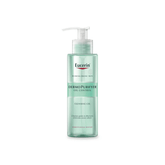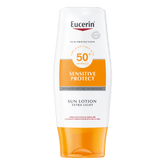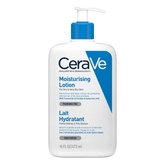Why You Should Include Retinol In Your Skincare Routine
When you want to keep your skin looking healthy and glowing, it can be hard to figure out which beauty products to use. Out of all the choices, retinol stands out because it has been shown to work and change things for the better. If you haven't thought about adding retinol to your skincare routine yet, you're missing out on a solid weapon against wrinkles, acne, and uneven skin tone. This article explores why retinol should be a part of your daily skincare routine and how it can help you get the glowing, young-looking skin you want.
What is Retinol?
Retinol is a form of Vitamin A found in skincare products. Vitamin A is very important for the health of your face. When you put retinol on your skin, it works at the cellular level to help it heal and renew itself. It helps eliminate old, dead skin cells and grows new, healthy ones. This method can make your skin smoother and look younger.
Terms like retinaldehyde, retinoids, and retinoic acid may sound complex, but they're all related to retinol. Each has its unique strengths and mechanisms of action. Among them, retinol is the most widely recognized and extensively studied. When used correctly, it not only delivers impressive results but is also generally well-tolerated, providing you with the confidence to incorporate it into your skincare routine.
When retinol is applied to your skin, it undergoes a transformation, converting into retinoic acid. This active form then goes to work, stimulating the production of collagen. The result? A smoother, more resilient skin structure, diminished fine lines, and reduced pore size. In short, your skin becomes a beacon of health and radiance.
Adding retinol to your beauty routine can make a big difference, making it a useful tool for people who want to improve the look of their skin. Whether you have acne, wrinkles, or uneven skin tone, retinol can help you get clearer, better-looking skin. Understanding what retinol is and how it works will help you decide if you want to add it to your skincare routine and start enjoying its amazing effects.
Recommended product 1
5 good things about retinol
Using retinol as part of your skincare routine can help in many ways. Adding retinol to your skincare routine can make a big difference in how it looks and feels. Retinol can help you meet your skincare goals, whether to fight acne, slow down the signs of ageing, or make your skin look healthier. You should think about this powerful ingredient for five main reasons:
1. Anti-ageing properties
It is well known that retinol can fight the signs of ageing. When you use retinol, your face makes more collagen, which helps smooth out fine lines and wrinkles. Retinol also helps your skin look smoother and younger by encouraging the growth of new, healthy skin cells.
2. Improves skin texture
Retinol can make a massive difference if you have rough or uneven skin. It helps your skin get rid of old cells and make new ones, making the surface smoother. This will make your skin feel softer and more even, giving you that desired silky look.
3. It lessens hyperpigmentation
Hyperpigmentation, which includes dark spots and uneven skin tone, is a common problem, especially in places like Nigeria that get a lot of sun. Retinol speeds up cell turnover, helps new skin grow, and fades these dark spots. Over time, your skin will look evener and healthier.
4. Helps with acne
People who have pimples may find that retinol works very well. It works by clearing out pores and stopping acne from coming back. In addition, retinol helps fade acne scars and marks, making your skin look brighter and healthier. You can avoid acne and improve the look of your skin by using retinol with your routine.
5. Makes skin look brighter
Retinol not only makes your skin feel and look better, but it also makes it shine brighter. Retinol makes your skin look younger and healthier by helping cells grow back. And now you can have a healthy glow that makes you look and feel great.
Read also: How To Get Rid Of Acne Scars In Nigeria
8 tips for using retinol in your skincare routine
It might seem scary to add retinol to your skincare routine, but if you do it right, you can get all its benefits with few possible side effects. Here is a step-by-step plan to help you begin:
1. Pick the right product
It is very important to choose the right retinol product. If you are new to it, use a more minor concentration of retinol at first, between 0.25% and 0.5%. You can slowly move up to higher amounts as your skin gets used to them. Find retinol creams, serums, or oils from well-known names that suit your skin type and problems.
2. Take your time
If you're adding retinol, less is more. Put it on your skin twice a week to see how it reacts. If your skin doesn't react badly to it at first, slowly increase the number of nights you use it until you can do it every night. This method helps your skin get used to the changes and lowers the chance of soreness.
3. Use the right way
Because it can make your face more sensitive to sunlight, retinol should only be used at night. Use a pea-sized amount of retinol to cover your whole face, ignoring the corners of your mouth and the area around your eyes after washing and drying your face. After that, use a moisturiser to keep your skin wet and safe.
4. Use with complementary products
Use soft, moisturising products with retinol to get the best results and decrease irritation. Use a mild cleanser and a rich moisturiser as part of your procedure. Serums with hyaluronic acid can also help your skin stay moist. Because retinol can make your skin more sensitive to the sun, you should always use sunscreen with at least SPF 30 daily to protect it.
5. Be consistent and patient
It takes a while for retinol to show benefits, so be patient and keep applying it. Your skin's structure and tone may improve in a few weeks, but it may take a few months for significant changes to show up, like fewer wrinkles and dark spots.
6. Use at night
It's best to do this because retinol makes your face more sensitive to the sun. Use a pea-sized amount of retinol to cover your whole face, ignoring the corners of your mouth and the area around your eyes after washing and drying your face. This helps keep these tender areas from getting irritated for no reason.
7. Avoid mixing with certain products
Be careful when you mix retinol with other active ingredients because it can be powerful. Using it at the same time as benzoyl peroxide or acids (like glycolic or salicylic acid) can worsen the inflammation. Instead, use these items every other night or talk to a dermatologist about safely using multiple active ingredients simultaneously.
8. Keep an eye on how your skin reacts
Pay close attention to how retinol makes your skin feel and look. Reduce the number of times you use it or switch to a lower dose if you experience too much redness, peeling, or irritation. Since everyone has different skin, making changes based on what works for you is essential.
Recommended product 2
How to choose the right retinol product
Choosing the right retinol solution is crucial to seeing the skin changes you want. These tips will help you pick the best retinol product for your face and reap its benefits. You can combat acne, smooth skin, and slow ageing with the correct retinol product. Here are some tips to help you pick the best retinol cream for your skin:
1. Know your skin type
Take a look at your skin type first. If your skin is dry or sensitive, choose a smaller concentration of retinol (0.25% to 0.5%) to keep it from irritating your skin. People whose skin is normal or oily can usually handle higher amounts. Knowing your skin type helps you pick a product that will work well without making your skin react badly.
2. Check the concentration
There are different levels of retinol products. Beginners should start with smaller strengths so their skin has time to get used to them. As your skin gets used to the product, you can gradually increase it to more substantial concentrations for more potent effects. For sensitive skin, look for formulas with relaxing ingredients like chamomile or aloe vera to help keep your skin from getting irritated.
3. Ensure you pick the right formula
You can get retinol in several forms, such as creams, serums, and oils. Most of the time, creams are better for dry or sensitive skin because they moisturise better. Because they are lighter, serums are great for oily or acne-prone skin. On the other hand, oils can help dehydrated skin by adding extra moisture. When picking the formula, think about what your face needs.
4. Look for extra ingredients
A good retinol cream usually has other ingredients that work with the retinol to make it work better. To keep your skin wet, look for products with hyaluronic acid or Vitamin E, which are antioxidants that can protect your skin from damage caused by the environment. These extra ingredients can help make the retinol product work better and be tolerated better overall.
5. Read reviews and do research
Reading reviews from people with similar skin types and worries is a good idea before you buy something. Customer comments tell you a lot about how well a product works. Also, look into the brand's image and the quality of its products. Retinol products from trusted names are more likely to work and be safe.
6. Get professional help
Talk to a dermatologist if you're unsure which retinol product to pick. They can help you find the best product for your skin type and worries to get the best results without any extra irritation.
8 products that work well with retinol
Retinol can change the look of your skin, but using it with the right other products can make its results even better and lessen any harmful effects that might happen. When you use retinol, you should think about adding these critical items to your routine:
1. Gentle cleanser
A gentle, moisturising cleanser is an excellent way to start your process. It's best to avoid harsh cleaners that can remove your skin's natural oils while you're on retinol. Look for a cleaner that gets rid of dirt and makeup well without making your skin dry or irritated.
2. Hydration serum
If you use retinol, make sure you stay hydrated. A hydrating product, especially one that contains hyaluronic acid, can help your skin stay plump and smooth. After washing your face, apply the serum and then your retinol product to add extra moisture and help your skin's barrier function.
3. Moisturiser
If you want to keep your skin from getting dry while using retinol, you need a good moisturiser. Pick a moisturiser that is right for your skin type, whether it needs something light for oily skin or something thicker for dry skin. Ceramides, glycerin, and niacinamide are some ingredients that can help your skin stay moist and feel better.
4. Sunscreen
Retinol makes your skin more sensitive to the sun, so you must put on sunscreen daily. A broad-spectrum sunscreen with at least SPF 30 is what you should choose. Even on cloudy days, put it on every morning to protect your face from UV rays and stop more sun damage and hyperpigmentation.
5. Soothe products
Soothing items can help calm your skin and lower the chance of it getting irritated. Look for items with aloe vera, chamomile, or Centella asiatica (cica). In addition to making your face less red, these can help calm it down.
6. Antioxidant serum
Along with retinol, an antioxidant serum, such as one with Vitamin C, can help protect your face from damage caused by the outside world. Putting on the antioxidant cream in the morning will help your skin look better and protect it from free radicals.
7. Eye cream
Sometimes, retinol can irritate the skin around your eyes more than other skin. Keep this area moist and safe by using a light eye cream. To keep your eyes solid and moist without irritating them, look for eye creams that contain peptides or hyaluronic acid.
8. Overnight mask
Every once or twice a week, use a mask that keeps your face moist overnight to boost it. These masks let you fix your skin's barrier and hydrate it again. This will make your skin more resistant to retinol's effects.
7 common myths about retinol
Retinol is a powerful ingredient in skin care products, but there are a lot of myths and false beliefs about how to use it. You can use retinol more effectively and confidently if you know the truth about it. We bust some popular myths below:
1. Retinol thins skin
A popular fallacy is that retinol thins your face. Contrary to its name, retinol works. It speeds up cell turnover and collagen production, thickening the skin over time. This treatment reduces fine wrinkles and enhances skin texture, making it stronger and healthier.
2. Retinol causes excessive peeling
Some peeling may occur when you start using retinol, but prolonged peeling usually indicates overuse or rapid application. Start with a low concentration and gradually increase it to reduce peeling and irritation. With retinol and a decent moisturiser, your skin stays moisturised and comfortable.
3. Retinol is bad for sensitive skin.
Many believe retinol is too strong for fragile skin. However, the appropriate composition and dose of retinol can assist sensitive skin. Look for products developed for sensitive skin, start with a lower concentration, and use less regularly. After that, use soothing and moisturising lotions for a robust skin barrier.
4. Retinol shouldn't be used with active substances
Contrary to popular belief, retinol can be combined with other active substances. Retinol is safe with many active substances; however, some combos can be unpleasant. Hydrating hyaluronic acid or calming niacinamide works nicely with retinol. Try new activities slowly and watch how your skin reacts.
5. Retinol mainly aids ageing skin
Retinol is known for decreasing ageing but can also treat other skin issues. Retinol helps clear acne by unclogging pores and reducing swelling. It can help reduce black spots and level skin tone, so it's not simply for ageing skin.
6. More retinol improves results
Using more retinol doesn't necessarily improve performance. Overuse can irritate, dry, and peel. Find a face-friendly balance. Use less and start with a lesser concentration. Increase concentration slowly as your skin adjusts. Regular and moderate use improves long-term effects.
7. Summer is too hot for retinol
Some people avoid retinol in summer because they fear it makes their skin more sun-sensitive. Retinol makes your skin more sun-sensitive, but you can use it year-round with sunscreen. Use a broad-spectrum SPF 30 or higher daily to protect your skin from UV radiation during any season.
5 potential retinol side effects and treatment
Retinol is fantastic for face maintenance but might cause issues when first used. Know these side effects and how to manage them to get the most out of retinol while reducing suffering. Here are some common adverse effects and treatments:
1. Rosacea/irritation
When you start taking retinol, your skin may be red and inflamed. This is natural as your skin adjusts to the new component. To handle this, begin with retinol once or twice a week and gradually increase use as your skin adjusts. Begin with a lower concentration of retinol (0.25% to 0.5%) to minimise irritation. To relax and preserve your face after retinol, apply a mild moisturiser that seals in moisture.
2. Dry, flaking skin
Retinol accelerates cell turnover, making skin dry and flaky. Fight this by using a soothing serum with hyaluronic acid to hydrate your skin. Use more moisturisers to prevent skin from drying out. Avoid scrubbing acids and other skin-drying treatments when using retinol at night.
3. More sun-sensitivity
Sunburns are more likely with retinol since it makes your skin more sun-sensitive. Use a broad-spectrum SPF 30 sunscreen for skin safety, even on cloudy days. Use a hat or other protection if you'll be outside for a while. Nighttime skincare should include retinol to protect skin from the sun.
4. Burning/stinging sensation
First-time retinol users may experience pain or burning. To relieve pain, buffer with moisturiser before using retinol to avoid irritation. Try retinol on a small region of your face before applying it to your entire face. Avoid getting it on your eyes and mouth corners.
5. Breakouts
Your face may break out when you first use retinol. This is a "retinol purge." This will fade as your skin adjusts. To treat breakouts, continue using retinol as directed and be patient; the purge phase should pass within a few weeks. Use a gentle cleanser to clean without irritating your skin. Apply moisturiser to keep your face moisturised for healing.
Conclusion
Retinol might have some side effects, but if you know how to deal with them, you can get the most out of its excellent skin benefits. We at Nectar Beauty Hub are dedicated to helping you reach your skin care objectives by offering premium skincare items containing retinol. We are Lagos's cheapest beauty shop, and we have many retinol products that are good for all skin types and problems.
Now that you know how to use retinol correctly, why not look through our retinol goods and take the next step towards healthier and better-looking skin? You can look at our selection on our website right now, and we'll deliver right to your door.

















